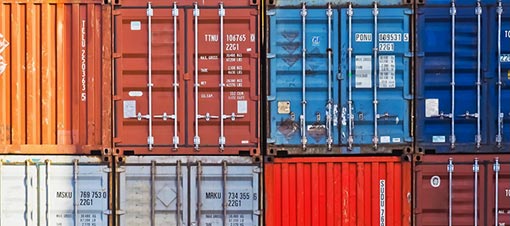News
NEWS CENTER
Several European countries' postal services suspend delivery of packages to the United States, as tariffs impact cross-border logistics
 Release time : 2023-06-21
Release time : 2023-06-21  Number of views : 144
Number of views : 144 Starting from August 29th, the United States will suspend duty-free treatment for imported packages worth $800 or less, and all applicable taxes and fees will be required for small packages. Affected by this, postal operators in multiple European countries have recently announced the suspension of parcel services to the United States. Analysts point out that the unilateral cancellation of tax-free treatment for low value goods by the US government is triggering a chain reaction in cross-border logistics and small and medium-sized enterprises, bringing uncertainty to the global postal cooperation system.
According to the previously announced details of the EU US trade agreement, packages sent from the EU to the US, like most EU products exported to the US, will be subject to a 15% tariff. This means that the long-term "low value tax exemption" policy implemented by the United States is about to expire, and the global cross-border e-commerce and postal systems are facing adjustments.
On the 22nd, the French postal group announced that due to the impact of US tariff policies, the group will suspend sending packages to the United States from the 25th of this month, except for private gift packages worth less than 100 euros.
DHL, a wholly-owned subsidiary of Deutsche Post, announced on the 22nd that it will temporarily suspend sending commercial goods and some private packages to the United States through postal channels. Only gift packages with a value not exceeding $100 can continue to be sent, but they are subject to strict regulations. Dunhao stated that due to the unclear tariff collection method and related operational details, it is currently unable to guarantee the smooth clearance of postal parcels, and therefore has taken temporary suspension measures.
Royal Mail has announced that it will temporarily suspend its shipping services to the United States starting from the 26th. After a transition period of one to two days, a new system will be implemented, which will incur additional handling fees on top of postage and tariffs to pay for additional fees related to US customs clearance services.
On the 23rd, the Italian postal company announced the suspension of processing commodity packages sent to the United States. Ordinary mail and "international express delivery" services can still be used, but the cost has significantly increased.
In the Nordic region, Finnish Post stated on the 19th that suspending deliveries to the United States is the only feasible solution as the US Customs has not yet clarified the payment method and postal companies in various countries have not established corresponding systems. The Nordic Post Company, a joint venture between the Swedish and Danish governments, has also announced that it will suspend the delivery of mail containing goods to the United States and Puerto Rico from the 23rd.
In Central and Eastern Europe, Czech Post announced that it will stop receiving some packages to the United States from the 22nd. The postal department of Bosnia and Herzegovina announced on the 22nd that it will no longer accept any postal items sent to the United States from that day onwards. Latvia Post announced that it will indefinitely cease accepting small packages and parcel shipments to the United States starting from the 23rd. Slovenia Post announced that it will temporarily suspend receiving letters and packages to the United States, regardless of their value, starting from the 22nd. Croatia Post announced that it will suspend all shipments containing commercial goods to the United States starting from the 26th. Bulgaria Post warns that packages sent to the United States will face serious delays or returns, and some items will need to be resent.
The European Postal Union stated in a statement that the new regulations in the United States are about to take effect, but "core issues and processes have not yet been defined", and there is still significant uncertainty regarding the tariff collection mechanism, necessary declaration information, and the way to interface with US customs. The statement warns that if a compliant solution cannot be found before the new policy takes effect, its member companies "may be forced to temporarily restrict or suspend sending mail containing goods to the United States through the postal network.
Sebastian Kumer, director of the Institute of Transport and Logistics Management at the Vienna University of Economics and Business, said, "The implementation of the suspension is due to too much uncertainty, and companies are concerned about the high costs that may arise in the future. These costs include possible warehousing fees and the possibility of returning goods due to US customs not accepting packages.
Industry insiders pointed out that the cancellation of low value duty-free treatment by the United States not only affects the circulation of packages between Europe and America, but also affects the global postal network. The postal department of Bosnia and Herzegovina stated that under the framework of the Universal Postal Union, there is still a lack of technology and operating systems that match the new policies of the United States, making it difficult to complete relevant information declaration and fee collection. Due to the inability to meet the requirements of the new regulations, the cooperating air carriers have also temporarily suspended the delivery of mail to the United States.
Experts believe that the most affected will be small and micro enterprises that rely on cross-border e-commerce. Luigi Daniele, the head of an Italian consumer rights organization, said, "This is a direct result of the Trump administration's imposition of tariffs, and the EU's passive role in negotiations has resulted in tariffs ultimately falling on consumers and businesses






 010-67972171/18612968171
010-67972171/18612968171